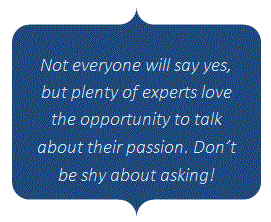Writing has been a
passion of mine from the time I was a little girl. The first piece I remember
writing was a song—and looking back, it made absolutely no sense! But I was so
proud of that song, and I remember strolling through my leafy backyard, singing
it to myself over and over.
As I became an adult, I
continued writing. Writing children’s books happened by accident, but I quickly
discovered I loved it! When the opportunity to write Police Horses, a segment in the We
Work! series with Bearport Publishing, came along it was a no-brainer. I
had written lots of nonfiction pieces for kids’ magazines, as well as a handful
of other nonfiction children’s books.
 My first order of
business was digging up any information I could find about police horses. This
included how they’re chosen, the way they’re trained, what’s required of them,
where they live, and more. It was a frustrating process, because I couldn’t
find any of the information I was looking for.
My first order of
business was digging up any information I could find about police horses. This
included how they’re chosen, the way they’re trained, what’s required of them,
where they live, and more. It was a frustrating process, because I couldn’t
find any of the information I was looking for.
That’s when I realized
I needed to do a personal interview. The thought made my bones shake! I liked
writing because I could do it alone, at my own pace. I told myself that speaking
with someone else would be an inconvenience for the other person, and no one
would want to help me.
Since the contract had
been signed, though, I had no choice. Racking my brain, I remembered an online
friend who used to work in her local sheriff’s horse division. She was happy to
help me, and we set up an email question and answer.
This personal interview
gave me a wealth of information! Not only that, but my friend was thrilled to
talk about something that had been an enjoyable part of her life. With her
help, the book was finished and sent along to my editors at Bearport.
The editors loved it!
They didn’t even ask for any changes.
The interview process
was such a hit that I was happy to try it again for Animal Actors, my next book with Bearport. I searched for anyone
who might be in the animal actor business, but I couldn’t come up with a solid
lead. In fact, after emailing several different types of experts I never
secured a single interview. Bummer!
Throughout the process
I definitely learned an important lesson—not everyone will say “yes”, but the
ones who do will make the jitters worth it. When you know you have a credible
source, it’s so much fun to turn in your completed manuscript with a shiny
expert endorsement. If you’re on the brink of writing nonfiction, I encourage
you to step out and seek those expert interviews. It’s worth the jitters!
A few interview tips:
- Brainstorm at least two different angles for your nonfiction piece. This will allow you to ask a broader variety of questions.
- Jot down at least a half dozen well-thought out questions beforehand, so that you go into the interview with a distinct direction. But! Don’t worry if the interview takes an unexpected twist. Sometimes those twists will give you exactly the unique hook you need.
- Do your research before the interview. In other words, don’t go into the interview blindly. Read whatever you can about the person you’re interviewing (their background and history, as well as the work they do). Read what you can about the subject of the interview, as well. You don’t want to waste the expert’s time by asking for answers you could find in any online source. On the flip side, don’t be afraid to ask basic questions, if you couldn’t find the information anywhere else. You need a firm foundation underneath your nonfiction piece.
KATIE CLARK writes young adult speculative fiction, including her recently
released dystopian trilogy, the Enslaved Series, made
up of Vanquished, Deliverance, and Redeemer. She also has multiple
nonfiction children’s books on the market, including Police Horses and Animal
Actors. You can connect with her at her website, on Facebook, or on Twitter.



I loved reading this! Loved the tought of coming at it from two different angles!
ReplyDeleteGlad you liked it, Joy. Hope it helps out!
ReplyDeleteGreat tips, Katie. One thing I would add is if you are doing a person to person interview (not email, but by phone or over coffee), you might want to ask if you can record it. That way when the jitters make you stumble, you have the whole thing to refer back to.
ReplyDeleteYes, if you can manage, always take notes AND record the conversation. Taking notes helps you keep the most salient information in mind, and saves the day in case of technical failure. Recordings let you get exact quotes when you need them. And always ask if you can contact the interviewee again if you need clarification on something.
ReplyDeleteExcellent tip, Sherry!
ReplyDelete